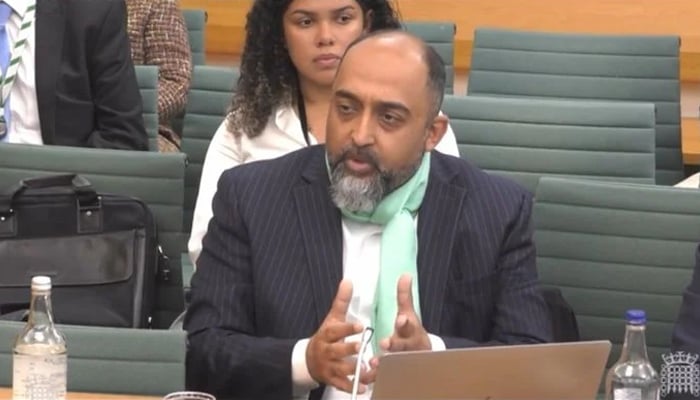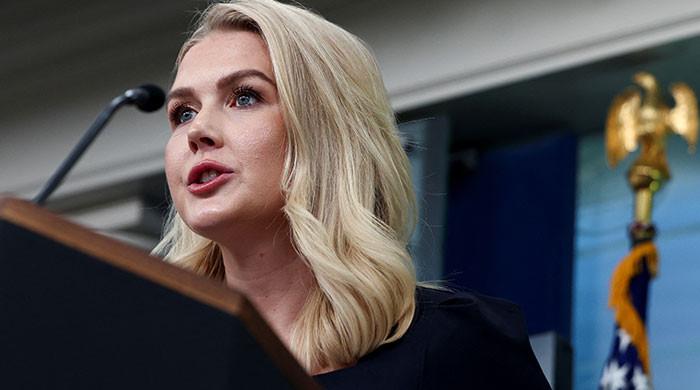India has 'undermined Western interest' in Indo Pacific region
UK Foreign Affairs Committee quizzes Indian, British, Pakistani experts on human rights dimension of India’s occupation of Kashmir
January 11, 2023

LONDON: Leading Pakistani commentator and foreign policy expert Mosharraf Zaidi has said that India’s occupation of Kashmir served not only to make the region less stable and less secure but also undermined the UK and other Western powers’ goals in the so-called Indo-Pacific region.
Zaidi said this while speaking at a discussion organised at the Parliament House by the UK's Foreign Affairs Committee on “How does India fit into the UK’s foreign and defence policies?”
Others in the panel of global experts, diplomats, and policy experts included Asoke Mukerji, former Indian Ambassador to the United Nations, Sir Dominic Asquith KCMG, former British High Commissioner to India, Walter Ladwig III, senior lecturer at the International Relations at King's College London, Garima Mohan, a senior fellow at the German Marshall Fund of the United States, and Aman Hingorani, lawyer and mediator at Supreme Court of India.
The United Kingdom’s integrated review of its foreign and defence policies includes a new dimension which is widely referred to as the tilt to the Indo-Pacific.
The House of Commons Foreign Affairs Committee has been conducting a review of the tilt to the Indo-Pacific and a specific session on India and the UK’s relationship with India.
Zaidi, The News columnist since 2008 and founder and CEO of the advisory firm Tabadlab, explained to the committee how India’s adventures in the region, especially the occupation of Kashmir and the continuing torture of millions of Kashmiris, have made the whole region ripe for a disaster, impending potential of the region for development and progress.
Zaidi’s testimony as an expert witness for the committee included a detailed analysis of the impact of India’s attempt to unilaterally change the status quo in Indian-Occupied Kashmir on August 5, 2019. These impacts include, he said, the re-engagement of China in the Kashmir dispute as manifested at the Galwan Valley in recent years.
Zaidi told the committee that India’s occupation of Kashmir served not only to make the region less stable and secure but also to undermine the UK and other Western powers’ goals in the so-called Indo-Pacific region.
The committee quizzed Indian, British and Pakistani experts on the human rights dimension of India’s occupation of Kashmir.
Zaidi’s detailed description of the thousands of killings in Kashmir and the proliferation of mass graves in the occupied territory repeatedly caused committee members to dig deeper and demand other experts explain how the UK could possibly ignore such suffering.
The chairperson of the Foreign Affairs Committee, as well as other members of the committee, also sought responses from the experts on how India could be a trustworthy partner when its posture toward Russia was not only neutral but in fact, pro-Russia.
Zaidi reminded committee members that India had purchased the Russian S-400 missile defence system and had pointed this weapon at Pakistan to help sustain the Indian occupation of Kashmir.











